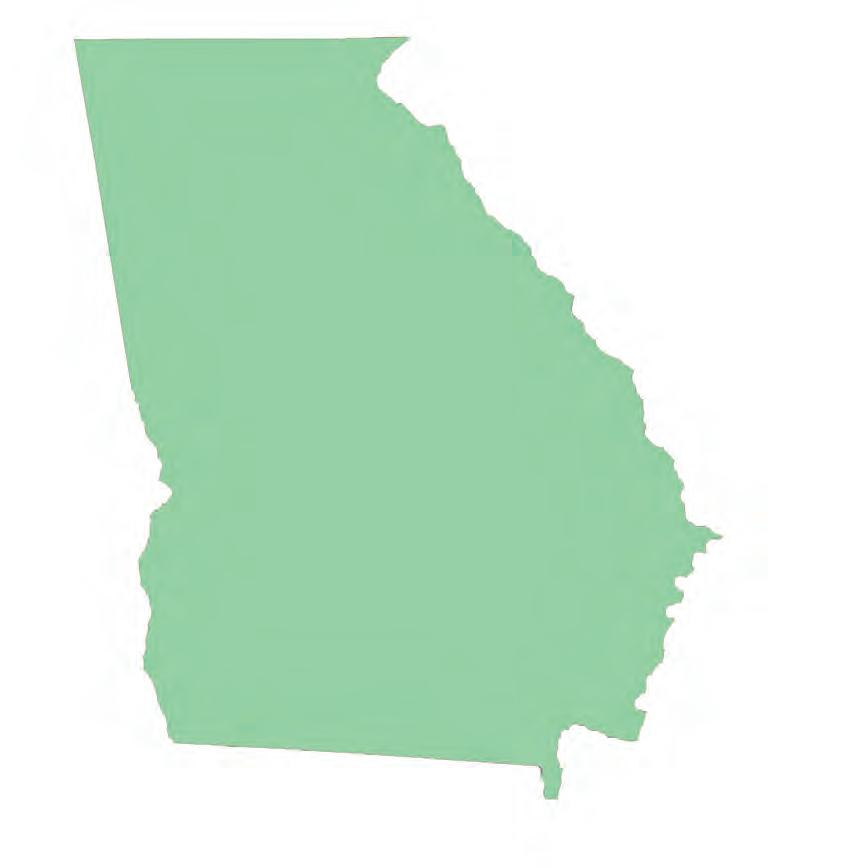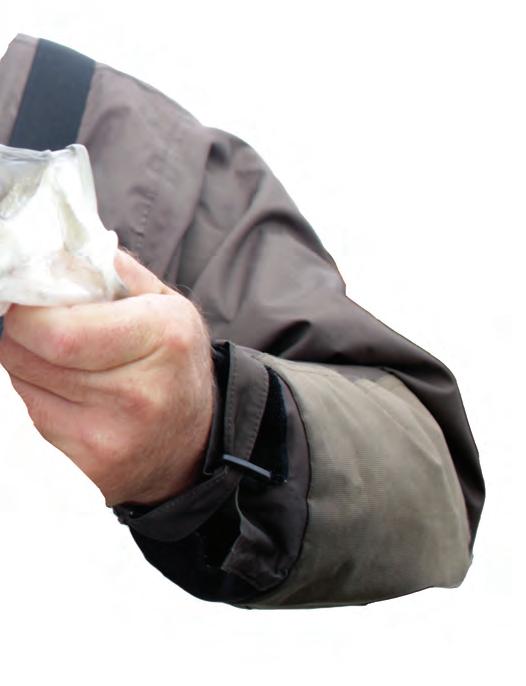
3 minute read
Georgia On My Mind STRIPERS
By Danny Patrick
I, however, was lured by reports a little farther north in Georgia, where rivers like the Satilla and Altamaha are producing bigtime striper fishing with each front that rolls through. Stripers prefer low-light conditions and colder water temps, so overcast, rainy and cold days are the best days.
I was giddy about the cold, foggy drizzle at 6:30 a.m. when I met guide Drew Jones at the Two-Way Fish Camp on the Altamaha near Darien, Ga. Jones runs fishing and duck-hunting charters in the area, and he’s caught more than 300 stripers up to 14 pounds for clients this season. They’ve had some 30- and 40-fish days, and this felt like a perfect striper day!
All I had to do was get in the boat with my gear and a thermos of hot coffee. Jones was waiting for me with his Carolina skiff in the water and a livewell full of gorgeous local live shrimp. As we motored off in the mist through creeks and the winding river, he told me a little about the fishing.
Stripers are constantly on the move, and they hunt in packs. Jones drift fishes live shrimp on float rigs to locate concentrations of fish. Then he switches to artificial lures. Slow-sinking stick baits and bucktail jigs with softplastic tails both work great.
Between Brunswick and Darien, Ga., the Altamaha system is a maze of creeks and tributaries. We stopped at the mouth of a creek on the Darien River, not far from downtown Darien. The tide was still coming in but slowing near the end of the high tide. Jones said to cast shrimp out in front a point where the current split to create a back eddy of slower flow. He said this was one of his favorite striper spots. It was an old ballast pile, where sailing ships from the 1800s dumped ballast weight from their hulls after crossing the ocean from Europe. They used hundreds, if not thousands, of 10- to 20-pound round rocks to stabilize their ships during the crossing and then dumped the rocks in order to navigate over the shallow sand and mud bars of the river. Georgia’s sounds and rivers are littered with piles of ballast rocks, many of which are fish magnets. We fished the point for a good 20 minutes with no bites before moving up the creek.
Through the early morning, we fished several spots with only a few small redfish and speckled trout to keep our attention. We fished a creek loaded with fishy-looking downed timber and carefully navigated beneath a low bridge, where Jones thought we might find fish on the outgoing tide.
He was correct. Jones hooked up with a nice 6-pound hybrid striped bass on his first cast near the bridge. Hybrids are a hatchery-produced cross between striped bass and white bass. They are unable to reproduce and are an excellent sportfish with the aggression of white bass and some of the size of a striper. These hybrids came from the Georgia DNR hatchery at Richmond Hill, Ga.
Jones said he catches true stripers and hybrids together, and that sometimes aggressive stripers move in and take over when he’s catching trout. I threw to the same spot Jones caught his fish and immediately hooked and boated a 4-pound hybrid. The bite was on! We saw them busting finger mullet and had one come unbuttoned right at the boat. But then, as is sometimes the case with stripers, it ended as suddenly as it had begun.
So, we picked up anchor and went back to the creek mouth where we started. Now the tide was running out swiftly. We caught several trout and a couple more hybrids before we headed back to the docks.
As we ran past downtown Darien, I saw remnants of old buildings from the 1800s and thought of the history. This was a major port during the early rise of the United States. Cotton and rice from slave plantations were shipped out of Darien, and old-growth cypress trees were logged way up the Altamaha. Loggers would cut trees close to the river and then raft them together in units of dozens of massive logs, which were floated down to the coastal sawmills with men riding the rafts.
Darien is a quiet town now, but it was a truly a bustling place then. It is beautiful with old live oaks and Spanish moss, and history buffs will not be disappointed. If you want to change up your fishing and explore a special place, give Jones a call. He can hook you up…
Capt. Drew Jones can be contacted at (912) 242-2502.









